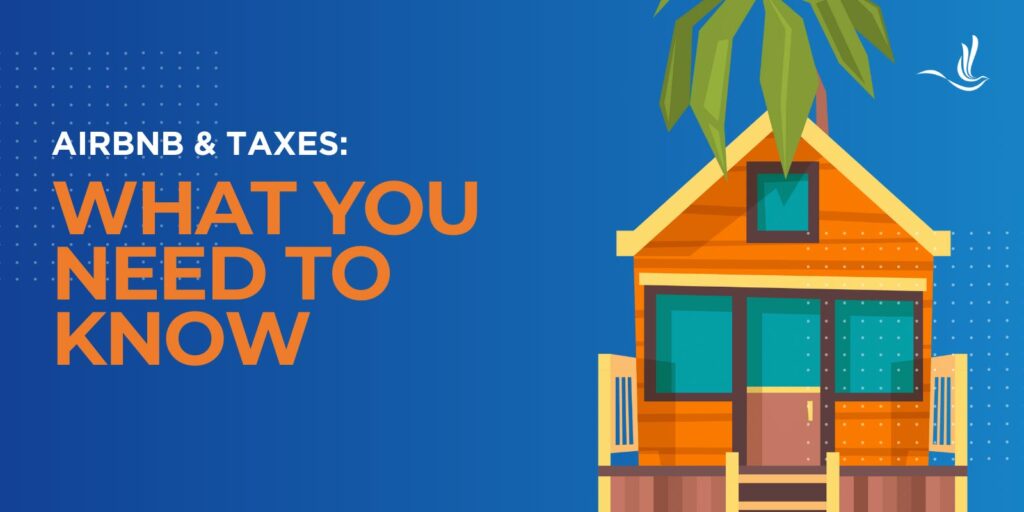
In recent years, sites like Airbnb, HomeAway and Vrbo have emerged as popular platforms for homeowners and renters to share their spaces with travelers, offering an alternative to traditional lodging options. While hosting on Airbnb can be a profitable venture, it also comes with important tax implications that hosts should be aware of. In this article, we will explore the key tax considerations for individuals who choose to host on Airbnb.
Rental Income and Income Tax
The primary tax implication for Airbnb hosts is the taxation of rental income. In the U.S., the income you earn from hosting guests on Airbnb is considered taxable income. This means that you are required to report your Airbnb earnings on your annual income tax return.
It’s essential to maintain accurate records of all your rental income, including any additional fees or charges you receive from guests. Luckily, Airbnb provides hosts with detailed transaction records, making it easier to track your earnings.
Self-Employment Tax
If you regularly host guests on Airbnb and actively manage your listings, you might be considered self-employed by tax authorities. As a self-employed individual, you may be subject to self-employment taxes. The self-employment tax rate is 15.3% of your net self-employment income. This tax is used to fund Social Security (12.4%) and Medicare (2.9%). In 2023, the first $160,200 of your total earned income is subject to self-employment taxes. In addition, there is an additional Medicare tax of 0.9% on income over certain thresholds for high earners. This tax applies to individuals earning over $200,000 (or $250,000 for married couples filing jointly). Those who are married filing separately have a threshold of $125,000.
Deductions for Airbnb Hosts
Airbnb hosts can deduct various expenses on their taxes to reduce their taxable income and, consequently, their tax liability. It’s extremely important to note that you can only deduct expenses in proportion to the area of the home that is actually rented. If you rent out a whole apartment unit, you can deduct all qualified expenses. However, if you only rent out a room in your home, you will only be able to deduct that portion of your total expenses.
Here are some common deductions that Airbnb hosts can consider:
Mortgage Interest, Insurance, and Taxes
If you own the property you’re renting out, you can deduct a portion of the mortgage interest paid on the property, as well as property insurance. Property taxes may also be deductible, typically for those who own the property. It’s important to note that self-employed individuals can deduct the employer-equivalent portion of their self-employment tax when calculating their adjusted gross income for income tax purposes.
Operating Expenses
Costs associated with cleaning, repairs, and maintenance of the rental property are generally deductible. Other deductible expenses include utilities, such as electricity, gas, water, and internet that are directly related to the rental property. You may also deduct items like cleaning supplies, toiletries, and any other items provided to guests. Finally, any services fees paid to your hosting site can be written off at tax time.
Depreciation
Depreciation is a non-cash expense that represents the wear and tear of the property. Hosts can often take a depreciation deduction for the property itself and, in some cases, for furnishings and equipment. Depreciation deductions are always a bit trickier, so you should consult with a tax professional.
Advertising and Marketing
Costs related to advertising your Airbnb listing, including professional photography, may be deductible.
Travel Expenses
If you travel to your Airbnb property for maintenance or to meet guests, you may be able to deduct travel expenses, including mileage, meals, and accommodations.
Professional Services
Fees paid to accountants, lawyers, or property management services that help with your Airbnb business can often be deducted.
Home Office Deduction
If you use a portion of your home exclusively for your Airbnb hosting activities, you may be eligible for a home office deduction. This can include a portion of your rent or mortgage, utilities, and maintenance costs. Currently, the home office deduction allows taxpayers to deduct $5 per square foot, up to 300 square feet or $1,500.
Record-Keeping and Documentation
To ensure compliance with tax regulations, hosts should maintain thorough records and documentation. Keep detailed records of your rental income, expenses, and any tax-related correspondence with guests or tax authorities. This will be essential in the event of an audit or tax inquiry.
Seeking Professional Guidance
Given the complexity of tax laws and the potential variations from one location to another, it’s wise for Airbnb hosts to consult with a tax professional or accountant. They can provide expert guidance on tax planning, deductions, and compliance with local tax regulations.
Tax Help for Airbnb Hosts
Hosting on Airbnb can be a financially rewarding experience. However, it’s essential to understand and navigate the tax implications associated with this venture. Income tax, self-employment tax, local regulations, and property taxes all come into play, and compliance is crucial.
To ensure a smooth and legally compliant experience, Airbnb hosts should keep meticulous records, consult with tax professionals when necessary, and stay informed about changes in tax laws or local regulations. By doing so, hosts can maximize their earnings while avoiding potential tax pitfalls and unexpected liabilities. Optima Tax Relief is the nation’s leading tax resolution firm with over $1 billion in resolved tax liabilities.
If You Need Tax Help, Contact Us Today for a Free Consultation